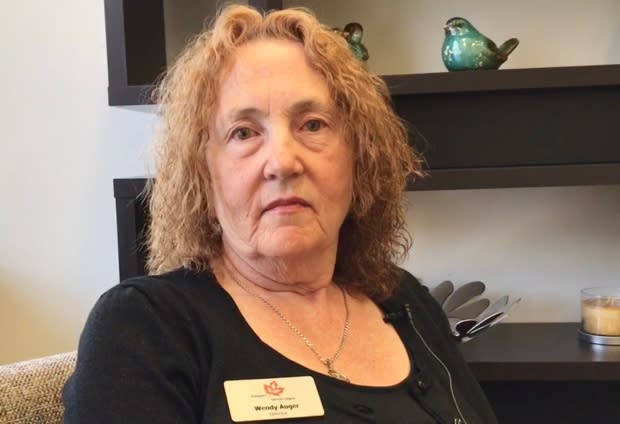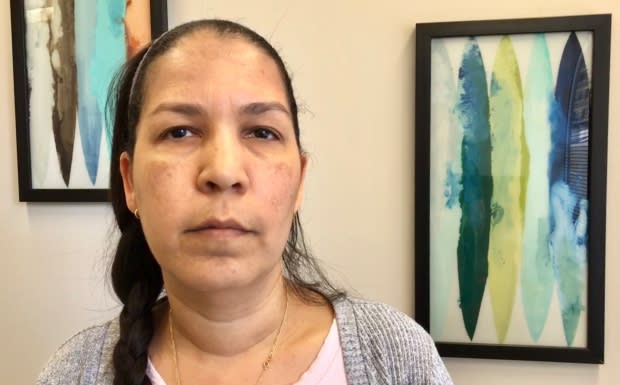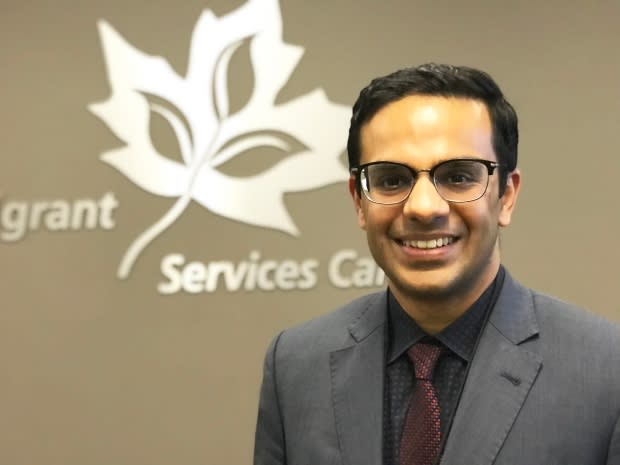Multicultural counselling helps speed up immigrant integration in Calgary

Being a newcomer to a new country and new city isn't easy.
Immigrants and refugees to Calgary can face a barrage of problems, like finding a first home and a job, learning a new language, and accessing services to help them succeed and fit into a new way of life in a very different society then they've been used to.
Even the weather can be a big adjustment.
On top of that, for many there are a mess of complex family pressures and financial strains that come with starting a new life.
Sometimes it's all too much and some newcomers fall into problems including: addictions, tensions at home leading to domestic violence, social isolation and mental health problems like depression and anxiety.
That's where counselling comes in.
A different approach
But newcomers often require a different approach to Alberta's mainstream counselling options, in their own language and with cultural sensitivity and awareness.
"We began in 1998 with a multicultural men's program," said Wendy Auger, director of Immigrant Services Calgary's Mosaic Family Resources Centre.
"This multicultural counselling program started about three years ago," said Auger, who said the organization saw a need from families, individuals, couples and children.
Auger said the program helped 116 couples in 2018 and services are being expanded in 2019.
The Mosaic program now provides first language services in nine different languages including: Spanish, Farsi, Hindi, Punjabi, Urdu, Italian and Polish.
"Things have changed a lot in terms of trends in immigration and with new refugee populations," said Auger. "There's been an increased focus on mental health."
Many cultures traditionally don't seek help when they're struggling. They never had services in their home countries and in some cases don't even have words for the services they need and the conditions they are experiencing.
"There's a focus around loss, people losing their cultural background, family, they feel isolated and they don't know their neighbourhood or the city," said Auger.

Auger said offering specialist help to deal with the complexities is costly and the question of funding is never far away from any settlement organization.
"There's a need for ongoing funding. Funding is often limited and short-term but long-term funding is what's really needed to keep high quality service and sustain programs like this one," said Augur.
Clients who receive specially tailored counselling in the language of their choice usually see better results and engage more in their therapy.
"There's 50 per cent more efficacy in terms of the results that you achieve with those clients," said Indira Caro, a psychologist and counsellor at Immigrant Services Calgary.
"Many clients come with more than one problem. It could be substance abuse, drug abuse, but the majority come with trauma histories, depression and anxiety," said Caro.
The Mosaic program offers 12 sessions, provided on a sliding scale where the client tells the program how much they can afford.
After the eighth session Caro said there's usually a big improvement.
When we were newcomers my Dad didn't seek help for the longest time because of the stigma but once he did some counselling it really helped his mental health. - Immigrant Services Calgary CEO Hyder Hassan
If a client needs more help after 12 sessions, extended help is also available.
So far this year the program has already helped 85 clients.
"Our best advocates are our clients," said Caro.
She said many referrals come from word of mouth, spread in the community as newcomers tell their friends and family that help is available.
"It's helping bring people to our doors," said Caro. "People often don't know where to go or they go to mainstream services and they don't feel like their problems are understood."

The program also has two counsellors for people in the community that can't access transport, based twice a week at the Genesis Centre in northeast Calgary.
Many others don't know counselling services exist at all.
"A Calgary Local Immigration Partnership survey done recently that said 42 per cent of newcomers don't know about it," said Immigrant Services Calgary CEO Hyder Hassan.
"So I think there's a gap there and we want to encourage and be a catalyst for quicker integration into the community," said Hassan.
"When we were newcomers my Dad didn't seek help for the longest time because of the stigma but once he did some counselling it really helped his mental health and now he is an advocate for that.
"But the steps for him to say 'yes', there was a lot of work."
He said the focus, as always, is on making sure both federal and private funding continues to allow programs like Mosaic to continue.
Hassan said there are seven settlement agencies in Calgary as well as in rural areas and northern Alberta.
He urges newcomers and families who need help to reach out and use the services that are available.


